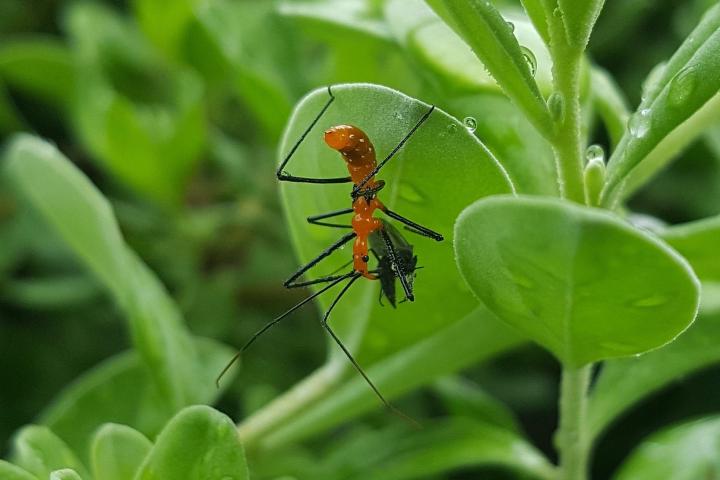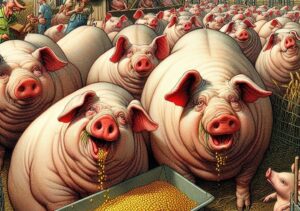
beneficial insects.jpg

Beneficial Insects
Introduction: Beneficial insects play a crucial role in agriculture by providing natural pest control, pollination services, and ecosystem balance. These insect allies help farmers manage pest populations, enhance crop yields, and promote biodiversity in agricultural landscapes.
Types of Beneficial Insects:
- Predatory Insects:
- Parasitic Wasps:
- Parasitoid wasps lay their eggs inside or on the bodies of pest insects, where their larvae develop and eventually kill the host. Species like Trichogramma, Encarsia, and Tachinid flies parasitize pest eggs, larvae, or adults, providing effective biological control.
- Pollinators:
Role of Beneficial Insects in Agriculture:
- Natural Pest Control:
- Predatory and parasitic insects suppress pest populations by feeding on pest eggs, larvae, and adults. Integrated Pest Management (IPM) strategies harness the biological control services of these beneficial insects to manage pests sustainably.
- Pollination Services:
- Pollinators facilitate fertilization and fruit set in many fruit, vegetable, and nut crops. By visiting flowers to collect nectar and pollen, pollinators ensure the production of viable seeds and fruits, supporting crop productivity and genetic diversity.
- Ecosystem Services:
- Beneficial insects contribute to ecosystem health and resilience by regulating pest populations, pollinating flowering plants, and supporting food webs. Their presence enhances biodiversity and ecosystem stability in agricultural and natural landscapes.
Conservation and Management:
- Habitat Enhancement:
- Providing diverse and suitable habitats, such as hedgerows, flowering plants, and insectary strips, encourages beneficial insect populations to establish and thrive in agricultural environments.
- Reduced Pesticide Use:
- Minimizing pesticide applications, especially broad-spectrum insecticides, preserves beneficial insect populations and maximizes their effectiveness in controlling pests.
- Cultural Practices:
- Crop rotation, cover cropping, and reduced tillage practices create favorable conditions for beneficial insects while disrupting pest life cycles and reducing pest pressure.
Conclusion: Beneficial insects are valuable allies in sustainable agriculture, contributing to pest management, pollination, and ecosystem health. By conserving and enhancing habitats for these insect allies and adopting practices that support their populations, farmers can harness the ecological services of beneficial insects to promote crop productivity and environmental sustainability.
Fall off the barn roof and busted your keister? Life on the farm or ranch can be tough on the bum. Need a break? Laugh it off at FarmerCowboy.com, the #1 farm humor site. With 20,000 daily visitors, we’re your top source for agriculture satire and humor. Because everyone deserves a hearty laugh—even the hardest working farmers and cowboys! Join us and turn those long days into fun tales at FarmerCowboy.com.
Originally posted 2007-10-12 19:53:52.
Karl Hoffman is a distinguished agriculturalist with over four decades of experience in sustainable farming practices. He holds a Ph.D. in Agronomy from Cornell University and has made significant contributions as a professor at Iowa State University. Hoffman’s groundbreaking research on integrated pest management and soil health has revolutionized modern agriculture. As a respected farm journalist, his column “Field Notes with Karl Hoffman” and his blog “The Modern Farmer” provide insightful, practical advice to a global audience. Hoffman’s work with the USDA and the United Nations FAO has enhanced food security worldwide. His awards include the USDA’s Distinguished Service Award and the World Food Prize, reflecting his profound impact on agriculture and sustainability.




